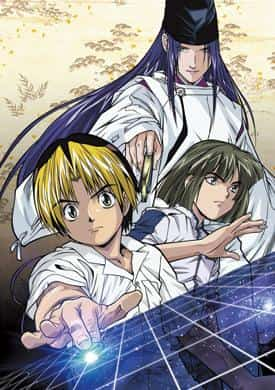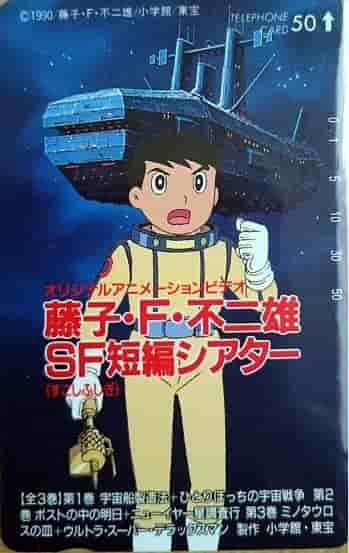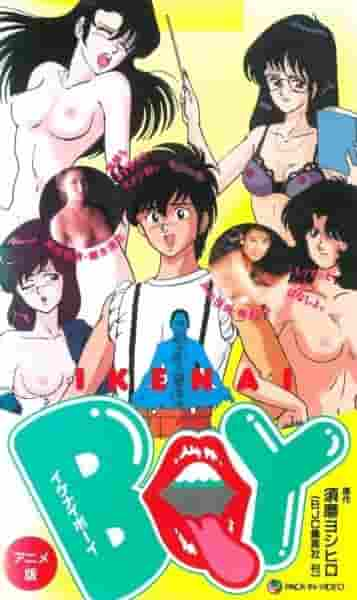Hikaru no Go: A review and review of a classic anime that depicts the charm of Go and the brilliance of youth

Hikaru no Go: The story of a boy fascinated by the world of Go"Hikaru no Go" is an anime series based on the popular manga written by Yumi Hotta and illustrated by Takeshi Obata, serialized in Shueisha's "Weekly Shonen Jump". It aired on TV Tokyo from October 8, 2001 to March 26, 2003, and gained many fans as a story about the growth and friendship of boys around the traditional game of Go. In this article, we will take a deeper look into the appeal and details of "Hikaru no Go". storyThe story of "Hikaru no Go" begins when an ordinary boy named Shindo Hikaru finds an old Go board in his grandfather's storehouse. The board is inhabited by the spirit of Fujiwara-no-Sai, a genius Go player from the Heian period, and Hikaru ends up meeting him. Inspired by Sai's passion for Go, Hikaru gradually becomes drawn into the world of Go. Through Sai's guidance and encounters with rivals, Hikaru awakens the talent that was dormant within him. The story depicts Hikaru's growth in the world of Go, while also intersecting with the human drama of the various characters surrounding him. In particular, the story is enriched by his confrontation with his rival Akira Toya, his friendship with his childhood friend Akari Fujisaki, and the bonds he forms with his fellow members of the Go club. Another major theme is how Sai's presence will affect Hikaru's life. characterThere are many unique characters in "Hikaru no Go." The main characters are introduced below. Hikaru ShindoThe protagonist, a boy, had no interest in Go, but after meeting Sai's spirit, he enters the world of Go. Through Sai's guidance and encounters with rivals, he awakens the talent that was dormant within him. Hikaru has a pure and enthusiastic personality, and the story depicts his growth through Go. Fujiwara SaiA genius Go player from the Heian period, he loved Go with all his heart and served as a Go instructor at the Imperial Court. However, he fell victim to a scheme and committed suicide, and his spirit resides in an old Go board. He meets Hikaru and together they try to master the "God's move." Sai plays an important role in bringing out Hikaru's passion for Go. Akira ToyaAkira is a genius boy whose father is a Go master, and is the same age as Hikaru. He is a hard worker, and does not become conceited about his talent, but continues to work hard. After losing a match against Hikaru (and Sai), he gains a new goal. Akira is Hikaru's biggest rival, and the showdown between them is a major highlight of the story. Akari FujisakiA childhood friend and classmate of Hikaru. Influenced by Hikaru, she started playing Go, but her skills are not so good. She works hard for the club, such as bringing in new members for the Hase Junior High School Go club, which is short on members, and caring about the feelings of the members. Akari is an important character who supports Hikaru. Kimihiro TsutsuiHe is the captain of the Go club at Hase Junior High School, and although he loves Go, the club is on the verge of being disbanded. With the help of Hikaru and Kaga, he struggles to rebuild the club. He has a serious and disciplined personality, and is also addicted to go instruction books. Kaga TetsuoA delinquent member of the shogi club who saves the Go club from a pinch together with Hikaru. Having played Go when he was young, he is quite skilled. He has a history with Akira Toya, which adds tension to the story. Toya KyoyoThe father of Akira Toya, Yukihiro is a master at the top of the modern Japanese Go world. Sai describes him as "the man closest to God's move." Like his son Akira, Yukihiro continues to hone his skills without becoming complacent, and continues to reign as a top professional. Yukihiro's presence is a great role model for Hikaru and Akira. Seiji OgataHe is a talented Go player under Master Toya, and is amazed by and interested in the talent of Hikaru (and Sai) that he saw at a children's Go tournament. Although he always maintains a cool and calm demeanor, he has a burning passion for Go. Yuuki MitaniA member of the Go club at Hase Junior High, he initially cheated and misbehaved, but after Hikaru's enthusiastic persuasion he joined the club. He served as captain in the tournament, but was defeated in the match against Kaioh. After that, he and Hikaru were fired up to defeat Kaioh in the next tournament, but... Kaoru KishimotoHe was the captain of the Kaiou Junior High Go Club, and was extremely strong in the junior high school Go club, but he had a history of failure as a graduate student. There is also an episode where he was already drinking black coffee when he was a first year junior high school student. Yoshitaka WayaA disciple of Morishita 9-dan and a member of the Japan Go Association. A fellow student of Hikaru, she is also a caring person who teaches the ignorant Hikaru many things. She also enjoys playing online Go, and her handle name is "zelda." She is good friends with Ikaku and knows him well. Shinichiro IzumiHe was a member of the Nihon Ki-in student group, and was ranked first in the group two years ago and last year, but failed the professional exam. If he doesn't pass this year, he won't be able to remain a student due to the age limit. He's a talented player, but he also has some mental weaknesses. Animation ProductionThe anime Hikaru no Go was produced by Studio Pierrot. It was directed by Nishizawa Susumu, Kamiya Jun, and Endo Tetsuya, with series composition by Ohashi Shikichi. Character designs were by Motohashi Hideyuki, Sekiguchi Kanami, and Ueda Miyuki, and art direction was by Takagi Sawako. Music was provided by Wakakusa Megumi, and music production was done by Avex Mode. The anime series was made up of 75 episodes, each 31 minutes long. It was broadcast on TV Tokyo from October 8, 2001 to March 26, 2003. The original manga was created by Yumi Hotta and Takeshi Obata, with Yasaka Kenji, Ibaraki Masahiko, and Ouchi Shigeaki providing original concept assistance. Yukari Umezawa of the Japan Go Association also supervised the series and provided guidance on the technical aspects of Go. Theme songs and musicA different artist was in charge of the theme song for each season of "Hikaru no Go." Details of the theme songs are listed below. Opening Theme OP1 OP2 OP3 Ending Theme ED1 ED2 ED3 ED4 ED5 ED6 subtitleThe subtitles for each episode of "Hikaru no Go" often symbolize the development of the story and the growth of the characters, leaving a strong impression on viewers. Below are the subtitles for all 75 episodes.
Related TitlesThere are several related works to "Hikaru no Go." Some of them are introduced below.
Evaluation and impactAlthough "Hikaru no Go" is a work based on the traditional game of Go, it has attracted many viewers with its story of boys' growth and friendship. In particular, the relationship between Hikaru and Sai, and the rivalry between Hikaru and Akira, left a strong impression on viewers. In addition, the detailed depiction of the rules and strategies of Go sparked an interest in the game for many viewers. The anime was also highly praised, with the character design, music, and storytelling all receiving rave reviews. In particular, the subtitles and theme songs for each episode were important elements that enhanced the appeal of the story. The original manga was also highly praised and loved by many fans. "Hikaru no Go" also contributed greatly to the spread of Go. After the anime was broadcast, more children started playing Go, and Go classes and clubs became more popular. Many books and teaching materials for learning the rules and strategies of Go were also published, which led to the culture of Go becoming more widely recognized. Recommendation"Hikaru no Go" is recommended not only for those who are interested in Go, but also for those who want to enjoy a story that depicts the growth and friendship of boys. In particular, the relationship between Hikaru and Sai, and the rivalry between Hikaru and Akira will surely impress viewers. It will also be a good learning material for those who want to learn the rules and strategies of Go. The anime has also been highly praised, with the character design, music, and storytelling all receiving rave reviews. In particular, the subtitles and theme songs for each episode are important elements that enhance the appeal of the story. The original manga has also been highly praised and is loved by many fans, so be sure to check it out. "Hikaru no Go" has contributed greatly to the spread of Go, and has inspired many people to start playing the game. Go classes and clubs have also become more popular, and many books and teaching materials have been published to learn the rules and strategies of Go. Please take a look at this work, which has helped to widely recognize the culture of Go. |
<<: The Prince of Tennis: Appeal and Evaluation of the First TV Series
>>: Fierce Battle! The appeal and reviews of CRASH GEAR TURBO: The hot-blooded battle never stops!
Recommend
The complete collection of Anno Hideaki's "Peak Peak" 35th anniversary is released
It has been 35 years since the classic OVA "...
Review of "Moving Balance Sheet": What is the appeal of Japan's shining mining industry?
The appeal and evaluation of "The Moving Bal...
Review of "Kemono Chat": A deep look into the unique experience of talking to animals
"Chat with Animals": The appeal of a ne...
The new poster of the TV series "Douluo Dalu 2" shows the famous scene of Xiao Wu sacrificing herself to save Tang San
Recently, the new poster of the TV series "D...
Cluster Edge review: A fascinating story and character depth
CLUSTER EDGE - In-depth review and comprehensive ...
Henry Cavill: The Witcher Season 2 is already in the early stages of preparation
The second season of the Netflix series The Witch...
James Gunn Explains Why The Batman Won't Join The DC Universe
DC Studios co-CEO James Gunn recently introduced ...
The Earth is about to be "disaster" again! Sci-fi disaster film "Moonfall" starts filming
The latest sci-fi disaster blockbuster "Moon...
P1S "Alita: Battle Angel" original manga "Battle Angel" statue priced at $1,399
Recently, the famous model manufacturer Prime1Stu...
The appeal and reviews of "Tayutama - Kiss on my Deity": A story woven by a sacred kiss
Tayutama -Kiss on my Deity- Review and Recommenda...
The new animation "Ricky Go Go" produced by the producer of "Peppa Pig" is exclusively broadcast on Youku
Recently, Entertainment One, the brand of the wel...
Marvel's new drama "Secret Invasion" is scheduled to premiere on June 21
Today (March 27), Marvel’s new drama "Secret...
Tokyo National Museum includes Gundam in "Future National Treasure" exhibition
Bandai Namco Filmworks announced at its autumn ev...
A thorough look at the appeal and evolution of Comic Party Revolution!
Comic Party Revolution - Comic Party Revolution -...
Marvel Comics official app officially launched today, all comics on the site are free for a limited time
Today (13), Marvel's official Chinese comic s...









